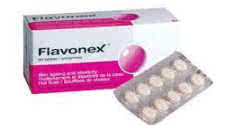The All New Natural Anabolic Supplement Flavone-X Information

Get the Pros/Cons of the New Flavone-X Supplementation
You may have read in other magazines about a putative new natural anabolic supplement referred to by some as "Flavone X." While the
original article on this substance gave few hints as to its true identity - for proprietary reasons, this was a euphemism for "we
don't want to reveal it to the competition until we sell it first" - the slight information provided did suggest that it was a
natural plant extract. Other sources have subsequently revealed Flavone X to be a substance known as 7-hydroxyflavone.
Flavonoids, including bioflavonoids, are well distributed in the food chain, and the average person consumes about a gram a day of
these various compounds. They have the considerable advantage of being not just natural, but safe as well. Related compounds in this
class have demonstrated anti-inflammatory, anti-allergic, antiviral, and even anticarcinogenic (as in the case of flavonoids found
in red wine and green tea) effects in humans.
A recent article in another magazine, however, decried the possible use of Flavone X for bodybuilding purposes, noting its lack of
efficacy in studies using human subjects. The article went on to confuse Flavone X with a similar group of substances called
isoflavones. Found in chemicals in soy and other foods, isoflavones have an estrogenlike structure and can block the deleterious
effects of excess estrogen in the body, which can include diseases such as breast and prostate cancer.
But 7-hydroxyflavone (Flavone X) acts in a different manner. It inhibits an enzyme called aromatase found in various tissues in the
body. Aromatase ads to convert androgens such as testosterone into estrogen. This is significant because estrogen is even more potent
than testosterone in turning off the brain mechanisms that promote testosterone synthesis in the body. This explains why injections
of testosterone turn off endogenous, or natural, testosterone in the body- it's partially converted into estrogen via aromatase.
So if you inhibit aromatase, you lower estrogen production and boost natural testosterone synthesis because the estrogen-release
mechanism to the brain is turned off. This is how Flavone X is supposed to work. When you consider that one-third of estrogen in males
is produced in the testes, with the remaining two-thirds produced via aromatization of adrenal androgens (including DHEA), you can see
how anything that effectively inhibits aromatase enzymes in fat and muscle can be effective. Certain drugs - notably Testolactone
(Testlac) and Cydadrencan - can do this, but they are expensive and have the potential to produce side effects. You also need a
prescription to obtain them, and most doctors won't provide one unless you exhibit a specific medical indication. Larger muscles isn't
one of them.
Enter natural aromatase inhibitors, such as 7-hydroxyflavone. In addition to this one, several other naturally occurring flavones
exhibit aromataseinhibiting effects, including alphanaphthoflavone, chrysin, biochanin A and the 4-methyl ester of genistein. One
study showed that a cocktail of eight of these compounds inhibited aromatase activity by 35%.
So do compounds such as Flavone X have a future? While human studies are scarce, the mechanism involving aromatase inhibition is real.
Only time will tell if these things work in the real world the way they do in test tubes and animals. But the odds are good that, whatever
the case, they are safer than other drugs currently available for the same purpose.